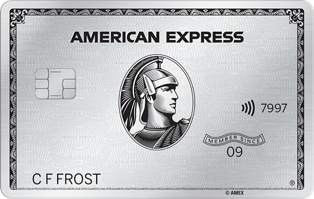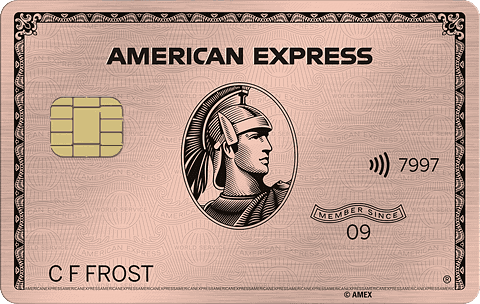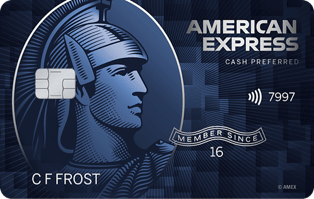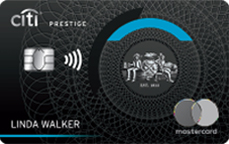- myFICO® Forums
- FICO Scoring and Other Credit Topics
- General Credit Topics
- Re: What they don't want you to know! Read and be ...
- Subscribe to RSS Feed
- Mark Topic as New
- Mark Topic as Read
- Float this Topic for Current User
- Bookmark
- Subscribe
- Mute
- Printer Friendly Page
What they don't want you to know! Read and be made Aware
Is your credit card giving you the perks you want?
Browse credit cards from a variety of issuers to see if there's a better card for you.
- Mark as New
- Bookmark
- Subscribe
- Mute
- Subscribe to RSS Feed
- Permalink
- Report Inappropriate Content
What they don't want you to know! Read and be made Aware
What they don't want you to know! Read and be made Aware.
The Fico scoring system is set up so that you, the citizen, the consumer, the borrower, the renter, the buyer and the applicant, eventually fail. That is, unless you are making over a certain amount of what Fico calls "threshold earnings".
I know what you're saying, that’s not true. Well, it actually is and it stinks to say that, but it’s true. The Fico scoring models are made to benefit the corporation, not the consumer. How? Why? Well, we'll start off easy and to the point. A lower Fico ultimately leans towards higher interest rates, larger down deposits, less favorable incentives and in the end, either a denial or an offer that they know you cannot afford.
Some will tell you that Fico does not calculate income. This is not true. Although Fico models do not know your exact income, they use their own "beacon" models to determine what they believe your income to be.
Example: Consumer A walks into a dealership and wants to buy a car that costs 65k. The dealership runs his credit which comes back at 695 and no derogatory remarks and asks where he works and what he earns annually. We'll say that Consumer A earns a 120k salary annually and that he works for a bank. The dealership approves him for the car and he drives away a few hours later, never having to actually show pay stubs, W-2's, statements or tax returns.
Consumer B walks into the same dealership and wants to buy a car that is 25k. The dealership then runs his credit which turns out to be 740 and no derogatory remarks and also asks for his annual income and his place of employment. We'll say that Consumer B works for a grocery store and earns a 55k salary. The dealership asks for his last paystub and a W-2. Why? They didn't ask consumer A who had a credit score which was lower than Consumer B. The reason being is that the particular Beacon model used showed that Consumer A was more likely to be "believable" than Consumer B. The model showed that he had a position within the bank that would pay around the same amount that the applicant put down on his application.
Yes, Fico has a model that does judge based on income and also on your particular job. Have you ever seen a person on this board post about a credit card division performing a financial review of their particular account(s)? Most of these reviews are triggered by this model by taking the information they put on the application and then putting it up against what the income model shows. So, if Consumer A puts down that they make 35k annually and the model shows that this person really makes 22k annually, then they will perform a review. Of course, other factors besides this can trigger a review, but this is just to show that a model for income does exist.
Information that I have received shows me that this is correct. The models are implemented to keep the "scales" in balance. What do I mean by this? Sadly, it means that the 9 to 5 person who works hard but makes a small salary, we'll say 25k annually, is kept on the "outs". How is this done? Have you ever applied for a job and they pull your credit report? This is to see a lot more than if you're paying your bills on time. Particular models can show past residences, jobs, income earned and more. It keeps the hard working individuals working blue collar jobs and "ensures" a way to filter our blue collar from white collar.
Example 2: If I take Consumer A (white collar) and Consumer B (blue collar) and give them identical reports with two identical credit cards with 5k limits. They both spend $500 on the cards equally, however Consumer A takes an impact of a 2 point drop for utilization where Consumer B takes a 10 point drop for utilization. Is this fair? No, it’s not. However it's the way the models are run.
This is why nobody will ever receive a specific scoring model algorithm from the bureaus. When they should have a standard, across the board scoring model, they don't because it's based off of so much more than if you pay your bills on time. You should easily be able to go onto the Fico website and be able to find proper information in regard to how your report is scored and modeled.
This name will be banned, I'm almost certain that one of your moderators, most likely 09Lexie will flag, lock and delete this post within minutes. However if at least one person reads this thread and takes notice at how the Fico system is actually set up to go against people who work hard then I will consider this post a success.
Best of luck to you all! I mean that.
- Mark as New
- Bookmark
- Subscribe
- Mute
- Subscribe to RSS Feed
- Permalink
- Report Inappropriate Content
Re: What they don't want you to know! Read and be made Aware
Equifax 850, TransUnion 842 10/30/17 , Experian 842 12/11/17 . AAOA 12 years Oldest 20
No inquires since 2014
All credit reports frozen
Fico 8 Equifax Bankcard 866 12/27/16
- Mark as New
- Bookmark
- Subscribe
- Mute
- Subscribe to RSS Feed
- Permalink
- Report Inappropriate Content
Re: What they don't want you to know! Read and be made Aware
Probably pointless to ask but:
Citations?
- Mark as New
- Bookmark
- Subscribe
- Mute
- Subscribe to RSS Feed
- Permalink
- Report Inappropriate Content
Re: What they don't want you to know! Read and be made Aware
So "they" created the FICO models to intentionally segregate blue collar and white collar workers because they somehow benefit from vast swaths of the population "failing" (defaulting?). Yeah... Everyone benefited handsomely in the 2008 meltdown, didn't they?
Ok chief, you've done a lot of awesome speculation and theorizing there, but where's your actual evidence? Are we to just take your word for any of this?
American Express - No CLI or Appreciation Gift in 7 Years




Citibank - Handing Out Credit Limits Like Candy





Chase - Surprisingly, Still Tolerating My Credit-Chasing Ways



Bank of America - My Newest Bae.



Everyone Else.





- Mark as New
- Bookmark
- Subscribe
- Mute
- Subscribe to RSS Feed
- Permalink
- Report Inappropriate Content
Re: What they don't want you to know! Read and be made Aware
LOL thanks for your perspective....as for the moderators they are quite fair...you broke no etiquette rules so I would think "09Lexie" would not even bother doing anything. My advise take it or leave it - mellow out S happens deal with it if this is what you believe...have a great day!!!!
- Mark as New
- Bookmark
- Subscribe
- Mute
- Subscribe to RSS Feed
- Permalink
- Report Inappropriate Content
Re: What they don't want you to know! Read and be made Aware
*shrugs* I dunno, seems like a modicum of truth is in there. From the anecdotal evidence I have (stories from sales & finance managers at car dealerships, personal experience, etc.), I'm inclined not to just brush it off. Would be interesting to see what cited sources OP has, if any.
Total: $91,700 | 2016 Goal: $95K | Utilization: 8%
- Mark as New
- Bookmark
- Subscribe
- Mute
- Subscribe to RSS Feed
- Permalink
- Report Inappropriate Content
Re: What they don't want you to know! Read and be made Aware
I believe the major laws here require no discrimination against sets of protected classes (the usual, plus others like those whose income derives mainly from public assistance etc) and fair reporting for all. As they are not a protected class, I think treating white vs blue collar differently is probably fine, provided there weren't confounding factors (such as blacks , vetrans or woman being over-represented in the less favorable treatment).
Issuers use these systems to minimize risk (and maximize profit) and presumably find them somewhat accurate for this purpose. My concern would be more like the cartel nature: while issuers can compete on rate, being branded with a low score on a commonly used system is going to make things hard for a consumer, with more variation another system might score much higher. Fico and others would say the score reflects the risk....
- Mark as New
- Bookmark
- Subscribe
- Mute
- Subscribe to RSS Feed
- Permalink
- Report Inappropriate Content
Re: What they don't want you to know! Read and be made Aware
So I'm confused there might be some truth to how people are looked at & treated, it might not be fair or right but not truth that FICO is at fault. It's the human nature of some business employees.
My Dad has been "discriminated" against of sorts by how he was dressed on particular day or even by race even though he had plenty $ to spend. People often judge by looks.
- Mark as New
- Bookmark
- Subscribe
- Mute
- Subscribe to RSS Feed
- Permalink
- Report Inappropriate Content
Re: What they don't want you to know! Read and be made Aware
Quick, somebody, get this guy a tinfoil hat.
- Mark as New
- Bookmark
- Subscribe
- Mute
- Subscribe to RSS Feed
- Permalink
- Report Inappropriate Content
Re: What they don't want you to know! Read and be made Aware
@Involver wrote:Quick, somebody, get this guy a tinfoil hat.
I think that is a little unfair. You see lots of posts here complaining that their score is unfairly low, that they get declined when others with similar/lower scores get accepted etc.
Basically FICO and others makes winners and losers, in some ways based on surprising or unknown factors. (For example, without info here and in similar forums, who would have guessed that the score could be improved by reporting exactly one non-zero balance).
Lenders were happy with red-lining and other discrimination techniques and would doubtless do it again if they could. So some scrutiny is justified without being accused or paranoia